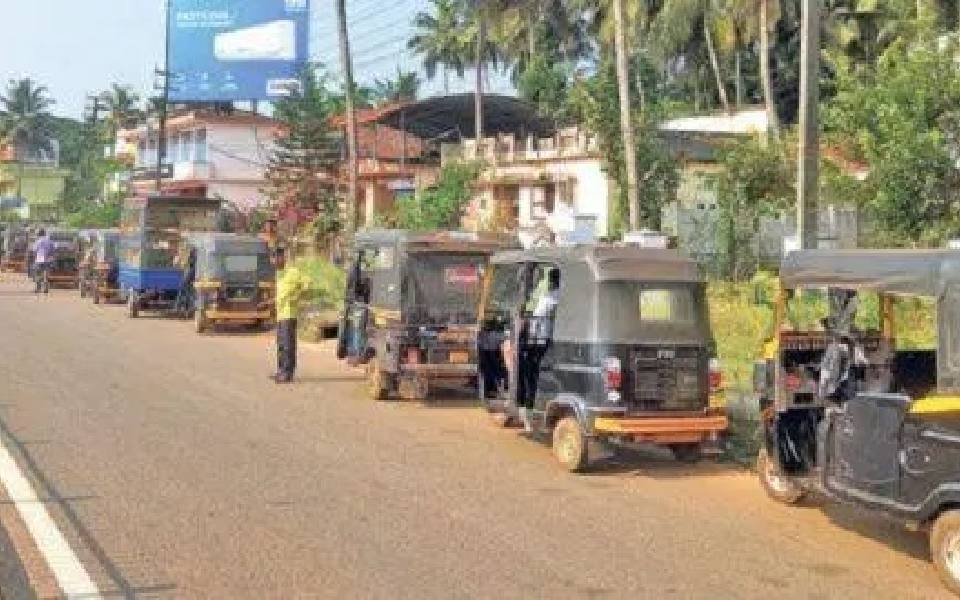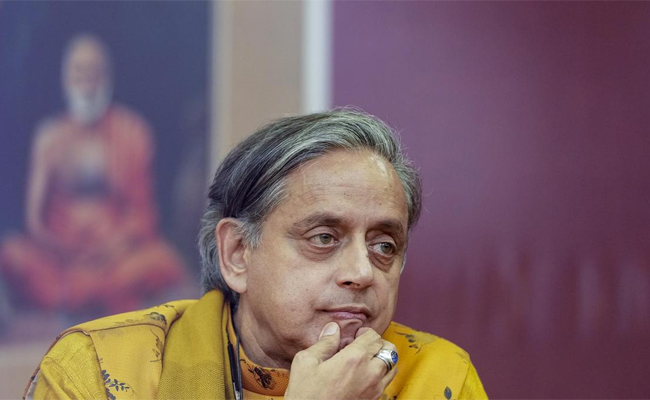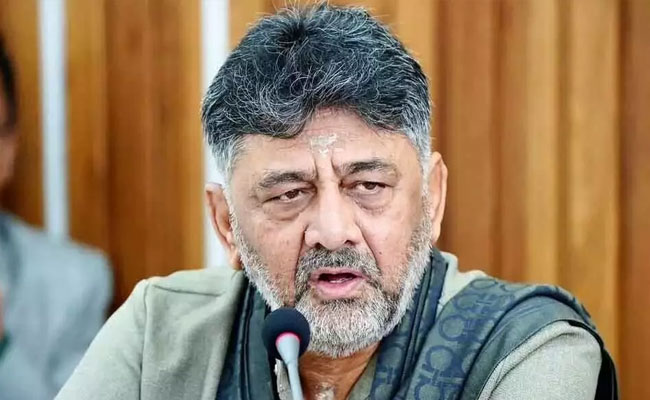Udupi (Karnataka) Apr 29: The coastal district of Udupi is going through a severe shortage of Compressed Natural Gas for Automotive applications.
Although the number of CNG fuel-based vehicles is increasing, the number of CNG filling stations in Udupi district has not risen. In the existing bunks, the supply is not as high as the demand. Due to this, motorists, especially rickshaw drivers have to wait for hours to get their fuel tanks filled.
“I've been waiting for not less than four-five hours everyday for the past one week. Most of the time my vehicle is idle and I am not able to take up fares, as a result of which I have lost so much of income and my bank obligations will take a beating if this continues any longer," Sundar Shetty, a rickshaw driver in Udupi said.
CNG fuel is not being supplied to existing bunks as per demand. And as the demand is high, the stock depletes quickly and sometimes the rickshaws are parked overnight in a queue for early morning refuelling, leaders of the CNG Autorickshaw Drivers Association said.
In Udupi town, there is only one bunk that has CNG facility, but most of the time it is empty.
“Due to high investment on land, equipment and daily stocks, there are not many takers for this business” the bunk owners said.
There is only one CNG station in Kundapura taluk out of three in Udupi district. There are more than 5,000 CNG based vehicles in the district.
The sight of hundreds of rickshaws and other vehicles waiting to fill CNG fuel at the CNG bank in Koteshwar every day from 4 am is very common.
Sometimes one has to wait till 8-9 o'clock. However, there is no guarantee that everyone will get fuel. Similar are the conditions in Karkala and Kundapur taluks of Udupi district.
The rickshaw drivers and other CNG users have appealed to the Udupi district authorities and approached the Udupi Chamber of Commerce and Industry to put pressure on the government to normalise supply and to open more bunks.
Let the Truth be known. If you read VB and like VB, please be a VB Supporter and Help us deliver the Truth to one and all.
New Delhi (PTI): Senior Congress leader Shashi Tharoor had a witty take on Kerala's name change on Tuesday, asking what happens now to the terms "Keralite" and "Keralan" for the "denizens" of the new "Keralam".
In a lighter vein, Tharoor said 'Keralamite' sounds like a microbe and 'Keralamian' like a rare earth mineral.
The Union Cabinet chaired by Prime Minister Narendra Modi on Tuesday approved the proposal for altering the name of Kerala to Keralam.
Ahead of the Cabinet decision announcement, Tharoor said, "All to the good, no doubt, but a small linguistic question for the Anglophones among us: what happens now to the terms 'Keralite' and 'Keralan' for the denizens of the new 'Keralam'?
"'Keralamite' sounds like a microbe and 'Keralamian' like a rare earth mineral ! @CMOKerala might want to launch a competition for new terms resulting from this electoral zeal," he said, sharing the media report on the name change.
The Legislative Assembly of Kerala passed a resolution on June 24, 2024 to alter the name of Kerala to Keralam'.
Thereafter, the government of Kerala requested the government of India to take necessary steps to amend the First Schedule to the Constitution by altering the name of Kerala to Keralam according to Article 3 of the Constitution.
The matter regarding the alteration of the name Kerala to Keralam was considered in the Ministry of Home Affairs, government of India and with the approval of Union Home Minister Amit Shah, the draft note for the Cabinet for changing Kerala to Keralam was circulated to the Department of Legal Affairs and Legislative Department, and the Ministry of Law and Justice for their comments.
The Department of Legal Affairs and Legislative Department, and the Ministry of Law and Justice have concurred with the proposal for the alteration of Kerala as Keralam.
After approval of the Union Cabinet, the president of India will refer a Bill, namely the Kerala (Alteration of Name) Bill, 2026 to the State Legislative Assembly of Kerala for expressing its views under the proviso to Article 3 of the Constitution of India.
After receipt of the views of the State Legislative Assembly of Kerala, the government of India will take further action and the recommendation of the president will be obtained for the introduction of the Kerala (Alteration of Name) Bill, 2026 for the alteration of Kerala as Keralam in Parliament.
Meanwhile, on Monday night, Tharoor said he was truly pleased to see C Rajagopalachari honoured by a statue at Rashtrapati Bhavan.
"He was its first Indian occupant as the only Indian Governor-General of India, before we became a Republic and he yielded his seat to the new President. I have long admired his convictions and was a strong supporter of his Swatantra Party in my student days," Tharoor said.
"His set of values and principles -- liberal economics and support for free enterprise, combined with social justice; strong anchoring in Indian civilization and religious faith but without a shred of communal bigotry; and a staunch faith in the rights & freedoms guaranteed by the Constitution, including keeping the government out of our kitchens, bedrooms and libraries -- remain mine to this day," the Congress MP said.
It is sad that there are so few left to follow him today, Tharoor added on X.





